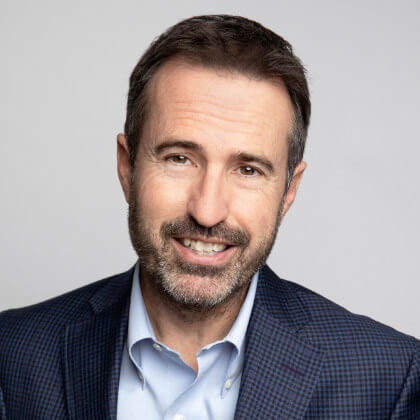Corporate Sustainability Announcements
Leading up to the World Economic Forum there were numerous big corporate sustainability announcements, from Blackrock calling for a fundamental reshaping of finance to Microsoft’s commitment to a net negative carbon policy. How did these initiatives frame some of the discussions at Davos?
- Smart businesses see an opportunity in the 2020’s to re-engage with communities, employees and key stakeholders. This will provide extra value for corporations and their shareholders who get this right.
Stakeholder Capitalism
The forum’s theme this year was stakeholder capitalism. Does purpose now come ahead of profit? What is the role of business, government and central banks in this new era?
- It’s not about putting purpose before profit, more so, the idea that purpose leads to profit
- Purpose will lead to better and more sustainable profit. This is what the smart investors have observed and are now engaging companies they want to invest in with purpose in mind. There is now empirical evidence that purpose could and will lead to a greater trajectory of higher profits over the long term
- If companies deliver a good return to its stakeholders (employees, suppliers, communities), then shareholders will do fine
- The smart shareholders understand the importance of purpose
ESG Considerations
The focus at WEF 50 seemed to be firmly on the E factors in ESG, namely Climate Change and indeed the five top risks in the Global Risk Report were all climate related. Yet socioeconomic inclusion and a social license to operate is a major issue for all businesses - how was it considered at the forum?
- This is a really important challenge for organizations to talk about and understand
- Clearly, the focus today is on the “E “(environment) within ESG. Though, the S and the G are equally critical
- One of reasons we have populism in the world is the “S” factor. People do not feel included- they see big companies around them with success and they do not feel socially included
- The “G” is really about accountability. How accountable are big companies to their stakeholders- not just their shareholders? How are they held to account? Davos produced some important and positive conversations around this topic.
- In the works is a new scorecard to measure companies on their accountability toward stakeholders which should in turn strengthen the way companies act on the “G” factor of ESG
- If companies hold themselves to account, they inevitably treat their stakeholders better, driving better results for the business and shareholders
Energy Sector Sentiment
Given the focus on climate, what was the sentiment amongst the energy CEOs? Do you think there is appetite for a global price for carbon?
- There is clearly concern in the energy sector about a decoupling between finance and operations.
- There was a healthy debate on a global carbon price at the forum. Ideally, we would have a global price on carbon but the odds are low, largely due to political reasons.
- However, many leaders at the forum in the energy sector are well ahead of the public, government and in some cases their investors. Most large companies do have an internal price on carbon to measure the cost of their carbon output on their own operations
- Moving forward, there is a role for the corporate sector to lead the way to develop carbon pricing and impact measurement frameworks
Concept of Trust
You highlight the concept of trust and note that business still enjoys more trust than other institutions including government and media. What can companies and financial institutions do to continue to earn the trust of their clients, their employees and in the communities in which they operate.
- This is going to be a decade of trust, most notably because we live in a digital and social world that will only exaggerate our low trust society
- In this context, business has become one of the most trusted institutions, more trusted than government and media. This will bring a great onus on businesses to engage with stakeholders to sustain this trust and to ensure that this trust is used for a better outcome for everyone
- We live in a much more global world where companies engage with many countries around the world, and in many cases, places they do not even have a physical presence.
- In order to enhance trust, businesses need to partake in sustainable practices in countries they operate in and around the world as a way to gain trust
Business Considerations
Leaving Davos, you concluded that businesses need to step up. What advice do you think we should be giving our clients here?
- This is an critical moment for business to seize on a couple of interesting forces in the world
- One is the need for transparency. All over the world, people are hungry for transparent companies that can articulate what they are doing, why they are doing it, and how they are doing it
- The second factor for businesses to think about is authenticity. People want businesses to be passionate about what they believe in and to authentically state what their purpose is. Doing so will only help drive businesses forward.
